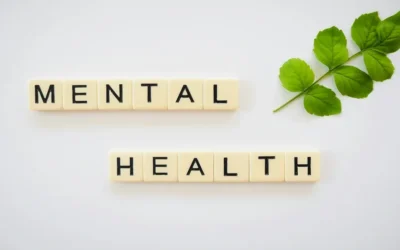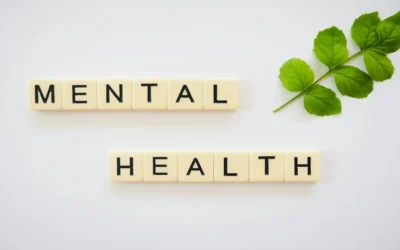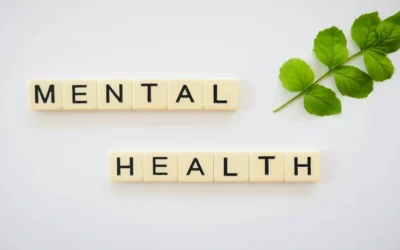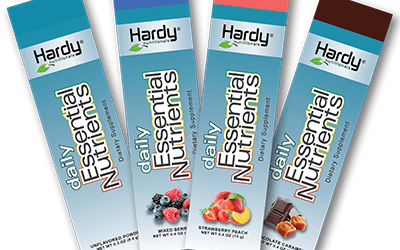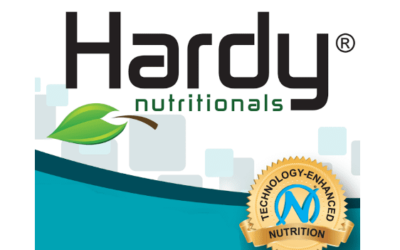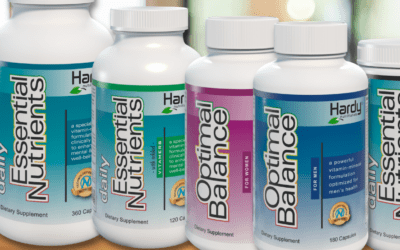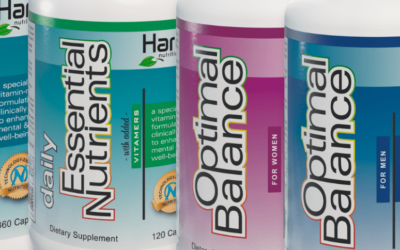Postpartum Depression: Understanding the Symptoms and Finding Support Bringing a child into the world is a life-altering experience, filled with moments of profound joy and, just as often, overwhelming challenges. It’s common to hear about the "baby blues"—periods of sadness, weepiness, or anxiety in the first couple of weeks after birth. But for many new parents, these feelings don't fade. They may intensify, becoming a heavy, persistent fog that makes it difficult to care for yourself or your new baby....
How to Find the Best Kind of Therapy Just for You
Navigating the Modern Landscape of Healing The journey to finding the right therapy is no longer about choosing a single, named modality from a static list. It has evolved into an act of informed self-discovery, a process that can lead to a personalized, integrated path to wellness. The most profound and lasting healing often emerges from a synthesis of approaches—one that honors your philosophical orientation, addresses your specific symptoms, respects your body's wisdom, and supports your brain's biology. This...
Adult ADHD, ADHD Screener, AuDHD, ADHD and Autism, Neurodiversity, Psychotherapy, Mental Health, Executive Function, ADHD Symptoms, Self-Assessment
Do I Have Adult ADHD? An Evidence-Based Guide & Informal Screener The Unseen Struggle of Adult ADHD For many adults, life can feel like a constant, unseen struggle. You might have a persistent feeling of being "off" or fundamentally out of sync with the world around you, leading to chronic stress and low self-esteem.1 Perhaps you've been told you're "lazy," "disorganized," or "not living up to your potential," and after years of hearing it, you've started to believe it. This experience, however, is often not...
Understanding the Peaks and Valleys: A Guide to Bipolar Disorder and an Informal Self-Screener
Explore the signs of Bipolar Disorder with our comprehensive guide. Learn about Bipolar I, Bipolar II, and mood episodes, and use our informal 30-question screener as a tool for self-reflection before speaking with a professional.
The Unseen Struggle: A Deep Dive into Purely Obsessional OCD (Pure O)
Struggling with intrusive thoughts and hidden mental rituals? Our expert guide demystifies Purely Obsessional OCD (Pure O), offering an informal screener and hope for recovery.
Have You Always Felt Different? Exploring Autism in Adulthood
The Question You've Been Asking: "Could I Be Autistic?" For many adults, the question arrives quietly at first, a gentle whisper that grows louder over time. It may surface after a conversation with a friend, after reading an article, or perhaps after a child or loved one receives a diagnosis of Autism Spectrum Disorder (ASD).1 The question is often rooted in a lifelong feeling of being fundamentally different from those around you—a sense of navigating the world with a different set of instructions that everyone...
How to Help Someone with Postpartum Depression: Beyond ‘Just Be Supportive
She's sitting there holding the baby, but she's gone. The person you love has disappeared into a hollow shell going through the motions of motherhood. She smiles for photos, but her eyes are empty. She says she's fine, but you watch her hands shake as she prepares another bottle. She insists she's just tired, but you know this is something deeper, darker, more dangerous than exhaustion. Or maybe you're watching him fall apart in ways no one talks about. Your partner who was so excited to be a dad now can't get...
Addressing Conduct Disorders with Micronutrient Therapy:
Hardy Nutritionals' Daily Essential Nutrients Approach for Conduct Disorder Conduct disorders represent one of the most challenging behavioral conditions in child and adolescent psychiatry, often characterized by persistent patterns of antisocial behavior, aggression, and violation of social norms. Traditional treatment approaches typically involve behavioral interventions and sometimes medication, but emerging research suggests that nutritional factors may play a more significant role than previously...
Nutritional Support for Prader-Willi Syndrome
Exploring Hardy Nutritionals' Daily Essential Nutrients for Prader-Willi Syndrome Prader-Willi Syndrome (PWS) is a complex genetic disorder that presents numerous challenges for affected individuals and their caregivers. Among these challenges, nutrition management stands as one of the most critical aspects of care. While conventional dietary approaches focus primarily on caloric restriction and macronutrient composition, emerging evidence suggests that micronutrient status may also play an important role in...
Nutritional Support for Brain Injury Recovery and TBI:
Emerging Evidence and Clinical Applications for Nutrition and TBI Traumatic brain injury (TBI) represents one of the most significant challenges in modern healthcare, with profound implications for cognitive function, emotional regulation, and overall quality of life. While conventional rehabilitation approaches remain essential, growing evidence suggests that targeted nutritional interventions may enhance recovery processes and potentially improve long-term outcomes. The Dictionary of Supplements and Herbs for...
Nutritional Approaches to Managing Aggression:
Emerging Research and Clinical Applications for Supplements for Aggression and Anger Aggression represents a complex behavioral pattern influenced by a multitude of neurobiological, psychological, and environmental factors. While pharmacological interventions remain the standard treatment for pathological aggression, growing evidence suggests that nutritional factors may play a significant role in both the development and management of aggressive behaviors. The Dictionary of Supplements and Herbs for mental...
Nutritional Approaches to Managing Antenatal and Postpartum Depression
Nutritional Approaches to Managing Pregnancy and Depression Antenatal depression affects approximately 7-20% of pregnant women worldwide, creating significant challenges for both maternal and fetal health. While conventional treatments remain essential, growing evidence suggests that nutritional interventions may play a supportive role in managing depressive symptoms during pregnancy. The Dictionary of Supplements and Herbs for mental health provides a comprehensive overview of natural supplements that may...
Natural Approaches to Managing Hyperactivity:
Explore evidence-based natural approaches to managing hyperactivity, including omega-3 fatty acids, zinc, magnesium, and herbal remedies like ginseng and pine bark extract. This comprehensive guide examines the research behind supplements, herbs, and complementary approaches for hyperactivity symptoms, offering insights into their effectiveness and safety considerations.
Natural Remedies for Insomnia:
The Science Behind Supplements and Herbs for Better Sleep Sleep is essential for our physical and mental well-being, yet insomnia affects millions of people worldwide. While conventional sleep medications can be effective, they often come with unwanted side effects and the risk of dependency. As a result, many individuals are turning to natural alternatives to improve their sleep quality. This comprehensive guide examines the scientific evidence behind various supplements and herbs that may help address insomnia,...
Evidence-Based Natural Approaches to Phobia Treatment
The Science of Phobias and Evidence-Based Natural Approaches to Treatment Phobias represent one of the most common anxiety disorders worldwide, affecting approximately 10% of the population at some point in their lives. Unlike ordinary fears, phobias involve excessive, persistent fear of specific objects, situations, or activities that pose little or no actual danger. The resulting distress and avoidance behaviors can significantly impact daily functioning and quality of life, from limiting career opportunities...
Understanding and Managing Oppositional Defiant Disorder:
The Role of Natural Supplements and Holistic Approaches Oppositional Defiant Disorder (ODD) represents one of the most challenging behavioral conditions affecting children and adolescents today. Characterized by persistent patterns of angry, irritable mood, argumentative and defiant behavior, and vindictiveness toward authority figures, ODD can significantly impact a child's development and family dynamics. While conventional treatments such as behavioral therapy and medication play crucial roles in management,...
The Natural Approach to Panic:
Explore evidence-based natural approaches to panic disorder, including nutritional supplements, herbal remedies, and mind-body practices that may complement conventional treatments and help manage panic attack symptoms.
Natural Approaches to Managing Depression:
A Comprehensive Guide to Supplements and Herbs Depression is a complex and widespread mental health condition affecting more than 17 million adults in the United States alone, with global numbers reaching hundreds of millions. While conventional treatments such as psychotherapy and antidepressant medications remain the foundation of care for clinical depression, many individuals seek complementary approaches to enhance treatment outcomes or address side effects. This comprehensive guide explores the scientific...
Natural Approaches to Managing OCD:
A Comprehensive Guide to Supplements and Herbs to OCD Obsessive-Compulsive Disorder (OCD) affects approximately 1 in 100 adults in the United States, significantly impacting daily functioning and quality of life. While traditional treatments like cognitive-behavioral therapy with exposure and response prevention (ERP) and medication remain the gold standard approaches, growing interest in complementary and alternative treatments has led to research on various supplements and herbs that may help manage OCD...
Natural Approaches to Managing Anxiety Disorders:
A Comprehensive Guide to Supplements and Herbs Anxiety disorders are among the most common mental health conditions worldwide, affecting approximately 40 million adults in the United States alone. While conventional treatments like cognitive-behavioral therapy and medication remain the foundation of care, many individuals seek complementary approaches to manage their symptoms. This comprehensive guide explores the evidence behind various natural supplements and herbs for anxiety disorders, providing insights...
Nutritional Approaches for Asperger’s Syndrome:
Current Evidence and Dietary Considerations for sperger's Syndrome Asperger's syndrome, now classified as part of autism spectrum disorder (ASD) in the DSM-5, is characterized by challenges in social interaction and communication, alongside restricted and repetitive patterns of behavior and interests. While conventional treatments focus on behavioral, educational, and psychosocial interventions, growing interest has emerged in the potential role of nutritional approaches in managing symptoms and supporting...
Nutritional Approaches for Dysthymic Disorder:
Evidence-Based Supplements and Dietary Interventions for Dysthymic Disorder Dysthymic disorder, now classified as persistent depressive disorder (PDD) in the DSM-5, represents a chronic form of depression characterized by depressed mood that persists for at least two years in adults. While milder than major depressive disorder in symptom intensity, its long-lasting nature can significantly impact quality of life and functional ability. Traditional treatments include psychotherapy and antidepressant medications,...
Adaptogenic Herbs and Nutritional Approaches for Stress Management:
Explore evidence-based approaches to stress management through adaptogenic herbs and essential nutrients. This comprehensive review examines ashwagandha, rhodiola, magnesium, B vitamins, and integrative strategies for building stress resilience.
Herbal Allies for Enhanced QEEG Outcomes:
Optimizing Brain Patterns for Neurofeedback Success Quantitative Electroencephalography (QEEG) and neurofeedback have emerged as powerful tools for assessing and optimizing brain function. By mapping electrical patterns across the brain and training individuals to modify these patterns, these approaches offer promising paths for addressing various neurological and psychological challenges. Increasingly, practitioners and researchers are exploring how specific herbs and botanical compounds might enhance QEEG...
Enhancing Neuroplasticity:
How Herbs and Supplements Can Boost Therapy and Neurofeedback Outcomes Neuroplasticity—the brain's remarkable ability to reorganize itself by forming new neural connections—underlies our capacity to learn, adapt, and recover from injury. This fascinating mechanism is the foundation for therapeutic approaches like neurofeedback and various forms of psychological therapy. Recent research suggests that specific herbs and supplements may enhance neuroplasticity, potentially amplifying the benefits of these...
Natural Approaches to Mental Wellness:
A Comprehensive Look at Supplements and Herbs In recent years, interest in complementary and alternative approaches to mental health has grown substantially. While conventional treatments remain the foundation of mental healthcare, many individuals are exploring natural supplements and herbs as adjunctive therapies to support psychological wellbeing. This growing field of research examines how various nutrients, botanicals, and natural compounds may influence brain function, mood regulation, and stress response...
The Potential of Broad-Spectrum Micronutrients for Managing Fibromyalgia Symptoms
Beyond Medication: How toTreat Fibromyagia Naturaly Fibromyalgia is a complex chronic condition affecting approximately 5% of the global population, characterized by widespread musculoskeletal pain, fatigue, sleep disturbances, cognitive difficulties ("fibro fog"), and various other debilitating symptoms. Conventional treatments often provide limited relief, leaving many patients searching for alternative or complementary approaches to manage their symptoms. Among these approaches, broad-spectrum micronutrient...
Managing POTS: Evidence-Based Approaches to Treatment
How to Manage POTS Naturally With Supplements Postural Orthostatic Tachycardia Syndrome (POTS) is a complex circulatory disorder that affects an estimated 1-3 million Americans. Characterized by an excessive heart rate increase when moving from lying to standing, POTS is accompanied by symptoms like lightheadedness, fatigue, brain fog, and exercise intolerance that can significantly impact quality of life. Hopkinsmedicine While there's no one-size-fits-all treatment, research has identified several evidence-based...
How to Know If You Have AuDHD: When ADHD and Autism Copresent
Understanding Autism and ADHD (AuDHD): The Overlooked Overlap and Potential of Micronutrient Treatment Introduction Autism spectrum disorder (ASD) and attention-deficit/hyperactivity disorder (ADHD) are two of the most common neurodevelopmental conditions, each with its own set of diagnostic criteria and challenges. However, there is a significant overlap between these disorders that is often overlooked, leading to misdiagnosis or inadequate treatment. This co-occurrence is sometimes referred to as AuDHD. In this...
How to Naturally Treat Mental Health Conditions
Supplements and Vitamins for Mental Health Introduction to Nutritional Psychiatry Nutritional psychiatry is an emerging field that examines the relationship between diet, nutrient intake, and mental health. Research in this area has grown exponentially in recent years, with studies showing clear connections between nutritional status and brain function, mood regulation, and mental health outcomes. The brain requires a constant supply of nutrients to function optimally. Key nutrients that play critical roles in...
Dictionary of Vitamins, Supplements and Herbs for Mental Health
{ "@context": "https://schema.org", "@type": "MedicalWebPage", "mainEntity": { "@type": "FAQPage", "mainEntity": [ { "@type": "Question", "name": "What supplements are recommended for anxiety?", "acceptedAnswer": { "@type": "Answer", "text": "Research-supported supplements for anxiety include L-Theanine, Magnesium, Inositol, Ginkgo Biloba, Ashwagandha, and Olive Leaf Extract. Each works through different mechanisms to help reduce anxiety symptoms." } }, { "@type": "Question", "name": "What nutrients help with...
Nutrition for Bipolar Disorder
Bipolar disorder is a complex mental health condition characterized by dramatic mood swings, oscillating between periods of intense elation or irritability (mania or hypomania) and profound sadness or hopelessness (depression). Managing this condition effectively often requires a multifaceted approach, and growing evidence suggests that targeted nutritional support may play a crucial role in stabilizing mood and improving overall outcomes. Hardy Nutritionals, a company at the forefront of clinical strength...
Nutritional Approaches to Reduce Anxiety
Anxiety represents one of the most prevalent mental health challenges today, affecting millions worldwide. Whether manifesting as generalized anxiety, panic attacks, social anxiety, or other anxiety disorders, these conditions can significantly impact quality of life. While conventional treatments like therapy and medication can be effective, a growing body of research suggests that targeted nutritional support may play a crucial role in managing anxiety by addressing underlying biological imbalances. At the...
Micronutrition for Mental Health: Treating ASD, ADHD, AUDHD and more!
Vitamin A (as beta-carotene) Vitamin A, particularly when sourced as beta-carotene, is essential for healthy brain development and ongoing function. As a potent antioxidant, it defends brain cells against oxidative stress, a type of cellular damage implicated in mental health conditions like depression, anxiety, and various neurodegenerative diseases. Beta-carotene is a provitamin A carotenoid, found in colorful vegetables like carrots, sweet potatoes, and kale, which the body converts into retinol (active...
Harnessing the Power of Micronutrients for Mental Health
Can Vitamins Treat ADHD and ASD? In today's fast-paced, stressful world, mental health challenges are on the rise. While conventional treatments like therapy and medication can be helpful, many people are seeking natural ways to support their brain health and emotional well-being. One promising approach that's gaining traction is micronutrient therapy - the use of carefully formulated supplements to provide the brain with the essential vitamins, minerals, and other nutrients it needs to function at its best. At...
Amino Acid Aces: How Hardy Daily Essentials Nutrients Harnesses the Building Blocks of Neuro-Nutrition for Mental Health Support
Can Amino Acids Treat Mental Health Issues? Amino acids are the building blocks of life, providing the raw materials for the growth, repair, and function of every cell in the body. But these versatile compounds play a particularly crucial role in the brain, where they serve as the precursors for neurotransmitters, the chemical messengers that allow brain cells to communicate and regulate mood, memory, and cognition. Imbalances or deficiencies in certain amino acids have been linked to a variety of mental health...
Mighty Minerals for Mental Health: How Hardy Daily Essentials Nutrients Supports Brain Function and Emotional Wellbeing
What does the research say about how minerals effect mental health? Minerals are the unsung heroes of brain health, playing essential roles in everything from neurotransmitter synthesis and signaling to energy production and neuroplasticity. Unfortunately, modern diets and lifestyles can leave us depleted of these critical nutrients, contributing to the rising tide of mood disorders and cognitive issues. That's where Hardy Nutritionals' Daily Essential Nutrients comes in. This innovative supplement is carefully...
The Brain-Boosting Power of Vitamins: How Hardy Daily Essentials Nutrients Supports Mental Wellness
What supplements have an evidence basis to effect mental health? When it comes to optimizing our mental health and cognitive function, we often focus on lifestyle factors like exercise, sleep, and stress management. While these are undoubtedly important, we may overlook another crucial piece of the puzzle: nutrition. The food we eat provides the building blocks for our brains and bodies to function at their best. And when it comes to packing in a wide array of brain-boosting nutrients, few supplements can match...
The Gut-Brain Connection: How Micronutrition and Synergistic Nutrition Support Mental Health
What supplements help mental health? Supplements for Mental Health: Vitamin A: Essential for brain development and function, may impact mood regulation. Vitamin C: Acts as an antioxidant, potentially reducing oxidative stress in the brain associated with anxiety and depression. Vitamin D: Linked to mood regulation and cognitive function, deficiency associated with increased risk of depression. Vitamin E: Antioxidant properties may protect brain cells from oxidative damage. Vitamin K: Emerging research suggests a...




















